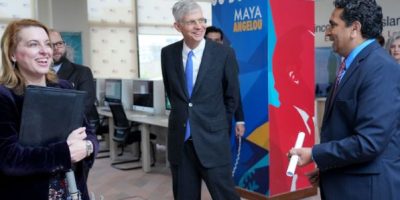ICCI Champions Economic Progress and Youth Empowerment in Pakistan.

ISLAMABAD, NOV 7 (DNA): At the recent launch of the “Ipsos Global Trends” survey, former President of the Islamabad Chamber of Commerce and Industry (ICCI), Zubair Ahmed Malik, emphasized the Chamber’s pivotal role in advancing Pakistan’s economic landscape. Representing ICCI President Nasir Mansoor Qureshi, Malik highlighted the Chamber’s commitment to reducing business costs, simplifying regulations, promoting equitable access to
finance, and strengthening a fair competitive environment for Pakistani enterprises.
In his address, Malik underscored ICCI’s strategy to foster robust academia-industry linkages, support the startup ecosystem, and inspire entrepreneurial initiatives. He advocated for entrepreneurship as a meaningful career path for Pakistan’s youth, positioning business ownership as a compelling alternative to traditional government employment. He commended Ipsos for its global expertise, noting that the study’s findings would provide Pakistan’s business
community with valuable insights to enhance economic vitality and societal well-being.
The high-profile event attracted business leaders, policymakers, and academics, with distinguished speakers including Simon Atkinson, Global Chief Knowledge Officer at Ipsos, and Abdul Sattar Babar, CEO of Ipsos Pakistan. The Ipsos Global Trends study, conducted with over 50,000 participants across 50 countries, explored shifting values, attitudes, and beliefs, offering comparisons between Pakistan and global trends.
Key findings reveal Pakistanis’ deep-rooted values in family, traditionalism, and a sense of nostalgia. Despite existing concerns over inequality and climate change, Pakistanis stand out globally for their optimism about technology, material progress, and future longevity. The study emphasizes the importance of leveraging technology, empowering youth and women, and building brand trust as solutions to address socio-economic disparities.
Malik concluded that these insights offer a roadmap for policymakers, business leaders, and educators to harness Pakistan’s enduring optimism and resilience, driving sustainable economic development and social progress.
Related News

Top US diplomat concludes five-day visit to Pakistan
ISLAMABAD, FEB 14 /DNA/ – Deputy Assistant Secretary (DAS) for South and Central Asian AffairsRead More

Natalie Baker connects U.S. companies
ISLAMABAD, FEB 13 /DNA/ – U.S. Chargé d’Affaires (CDA) Natalie A. Baker hosted a webinarRead More


Comments are Closed